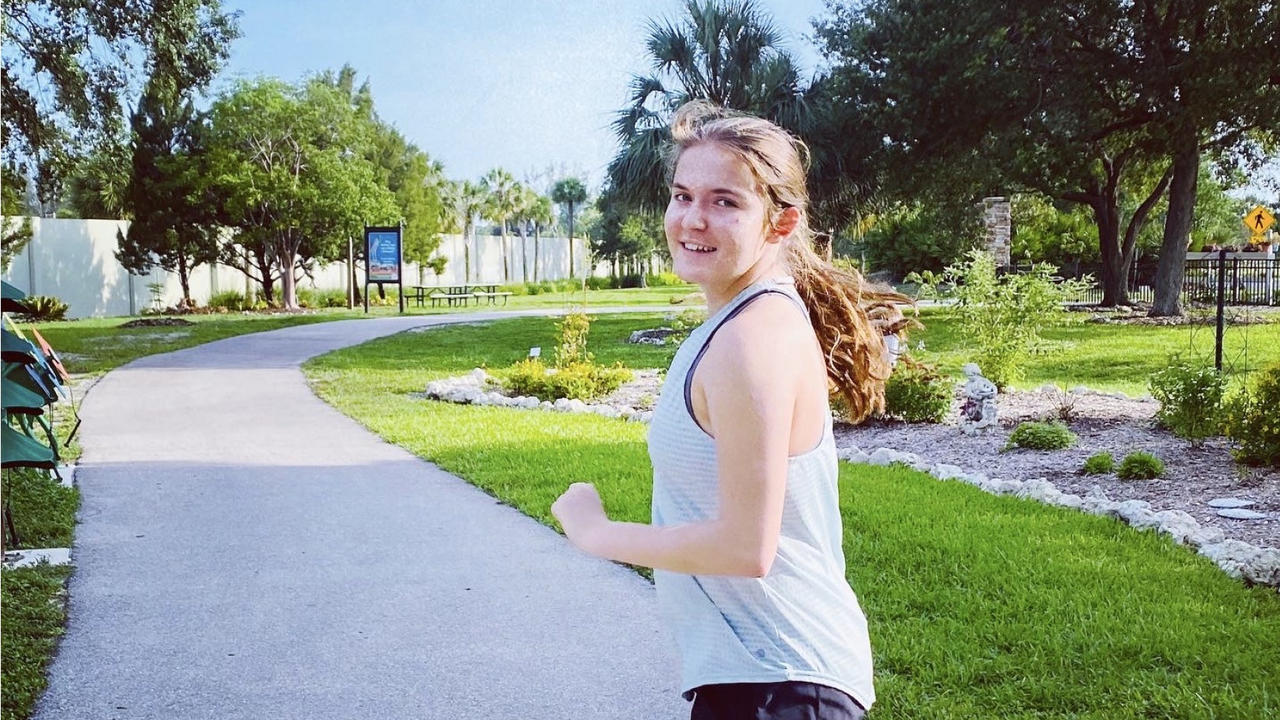Evidence Supporting Children and Physical Activity Continues to Grow

Josie takes a break from school work at home (during isolation from COVID-19) to exercise in Lakes Park (Fort Myers) with her dad. Photo Courtesy of Charly Caldwell II.
Physical activity is a natural activity and essential for the healthy growth and development of babies and children.
Bodies are meant to move, and just like their moms and dads, it’s good for little bodies and minds.
Physical activity and regular exercise for children is essential for their physical and emotional health.
Since the guidelines were published back in 2008, evidence supporting the importance of exercise for children continues to grow.
Infants and children need daily physical activity to:
- support brain development
- build strong muscles, joints and bones
- improve coordination, balance and flexibility
- reach and maintain a healthy weight
- promote relaxation and improve sleep quality
- increase confidence, happiness and help build strong social skills, and
- improve academic achievement.
In addition, regular physical activity leads to strong bones and muscles, healthy hearts and lungs, better flexibility and posture, and can prevent overweight and obesity and diseases like heart disease, type 2 diabetes and cancer in later life.
Children can get enough exercise with every day, unstructured activities such as walking, running, jumping, riding bikes, swimming/playing in the pool or using playground equipment.
Encourage children to move more and sit less.
As your child reaches school age, they may do more structured exercises, such as dancing or gymnastics, or try modified sports such as soccer and football.
Structured sports are an excellent vehicle for helping children learn new physical skills, enjoy working in a team, and learn the thrill of winning as well as how to lose graciously.
However, not all children enjoy or have the physical skills needed for certain sports.
Choose to support your children by encouraging them to practice and overcome difficulties, but know it is also okay if your children dislike a sport.
Instead, help them find an activity they enjoy: anything they do that requires regular movement will benefit their well-being.
The US Department of Health and Human Services recommends the following activity based on age:
- From birth to one year, babies should have some physical activity, especially supervised floor play in a safe environment.
- Toddlers and children aged one to five years should be physically active for at least three hours a day.
- Children aged 6 to 17 years should do at least an hour of moderate to vigorous physical activity every day, and should participate in activities that strengthen their muscles and bones at least three days a week.
Finally, the Department of Health and Human Services recommends that (for healthy child development and to promote movement/activity) children under two should not watch television or use electronic media.
For older children, limit the time spent looking at television, playing with tablets or other digital devices to:
- less than one hour a day for children aged 2 to 5 years
- less than two hours a day for children aged 5 to 17 years
Remember, you are your child’s most important role model.
No one has a greater impact on their health and development than you do.
Parents can set the best example by keeping active themselves.
If you enjoyed this blog post, you'll really enjoy our 14 DAY MINDSET CHALLENGE which is part of our Monthly Membership program helping & supporting you toward living your best life!
Our Geared Up theme for you is "Health, Wellness & Fitness in a Multi-Sport Lifestyle". Find out all of the ways we can support you through our Membership programs here.
Let's go on this journey together and change your life as always, “Practice with Purpose and Live with Passion!”
Angie

